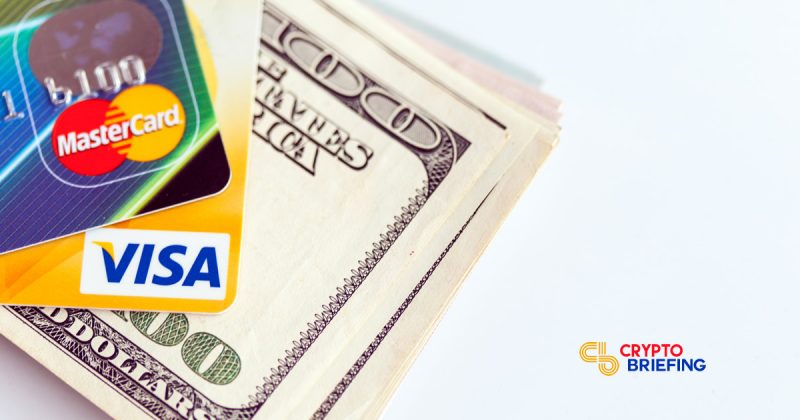
Cryptocurrencies Challenge The Visa And Mastercard Duopoly
Cryptocurrency Visa. Centralized payment processors have a stranglehold on business: decentralized blockchains represent viable alternatives.
It’s a rare thing indeed when two multinational heavyweights come out the worse in a court case. Even rarer when the settlement costs them collectively over $6bn.
The business press reported earlier this week that Visa and Mastercard, along with a sprinkling of banks, would pay a class of more than 12 million merchants a multi-billion dollar settlement. This comes after a lawsuit was brought by merchants who argued the payment networks had increased their swipe fees illegally.
A $5.54bn-$6.24bn settlement was agreed on, at the conclusion of the court case on Tuesday.
The fees in question are what’s called an ‘interchange’. It’s the transaction cost that merchants pay to use a payments processor everytime a sale is made. The money goes towards the upkeep of the network and partly to the banks’ credit card reward schemes. Although an increase in the interchange is unlikely to dent profits from the likes of Starbucks (which incidentally pulled out of the lawsuit), arbitrary cost-hikes could be catastrophic for businesses with smaller margins.
No modern-day business can hope to survive long without card payments; the payment processors know this. They have a stranglehold over commerce around the world, a position they can exploit to their own advantage.
Cryptocurrency Visa rivalry
On the same day that Bloomberg reported on the settlement, it launched an invective against Bitcoin Cash (BCH), claiming it was a license for a few techies to “create money out of thin air”.
Bloomberg’s hostility to crypto is nothing new – entrenched business interests seem to have a tighter grip on their editorial slant than they do on Washington politicians – but this was knee-deep analysis that failed to consider why the fork happened at all. Bitcoin Cash was created as a way to make a better peer-to-peer cryptocurrency. Rather than off-chain solutions, like Lightning Network, bigger block-sizes means the network can process transactions far faster than BTC, and for less.
All of these functions are decentralized. It is true that CoinGeek and Bitmain are large players in the space, but there is currently no single institution able to manipulate the network for individual gain.
This is just one example. There are other cryptocurrencies with their methodologies. Singapore-based Zilliqa (ZIL) uses sharding technology to ramp up the validation process; Nano (NANO) uses block-lattices, a structure with each user having their own chain in a vast interconnected web; Lisk (LSK) has created a side-chains architecture, all linked together by a main-chain.
The point is that there are multiple alternatives to the centralized payment processors, that are becoming increasingly viable. Visa and Mastercard have agreed to a settlement, but another court case calling on them to change their business practices – to not exploit their position of power – is still ongoing. The result is uncertain.
Instead of trusting on the goodwill of the payment processors, merchants should look towards cryptocurrencies. Fees collected go towards the upkeep and running of the decentralized network, not to help fund credit card reward schemes run by the banks. There is already a growing trend for mobile phones as a medium of payment; cryptocurrency Visa or Mastercard cards, like TenX, simply extend the duopoly’s tenure..
A lack of rival payment processors has enabled them to hike up interchange fees without damaging their businesses. The fact that they now have to pay $6bn back shows the scale of their operations. The duopoly of Visa and Mastercard works in their best interests. They have gotten fat on the proceeds of small merchants.
Businesses are supposed to thrive on competition, it’s time Visa and Mastercard had some.
The author is invested in BTC and ZIL, which are mentioned in this article.
